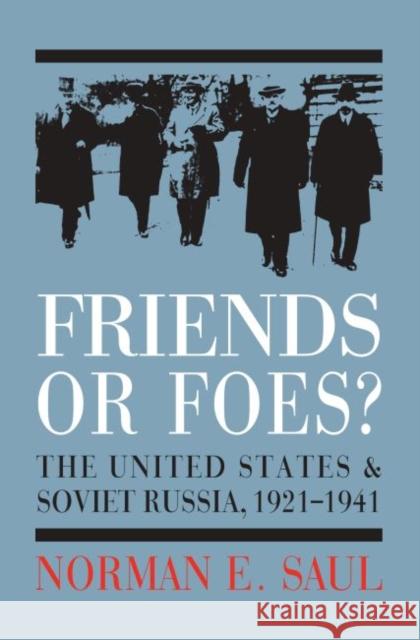Friends or Foes?: The United States and Soviet Russia, 1921-1941 » książka
topmenu
Friends or Foes?: The United States and Soviet Russia, 1921-1941
ISBN-13: 9780700614486 / Angielski / Twarda / 2006 / 454 str.
With Friends or Foes? Norman Saul continues his monumental multivolume magnum opus on U.S.-Russian relations over the course of 200 years. This fourth volume provides the first comprehensive study in any language of an era that shaped the rest of the century and captures the major changes in relations between two nations on the verge of becoming dominant global powers.
Among other things, Saul examines the rationale for America's failure to recognize the Soviet government through the early 1930s, analyzing the impact of the Red Scare and the roles of the State Department, Russian migrs, religious groups, and key individuals--like Charles Evans Hughes, Robert Kelley, Herbert Hoover, Boris Skvirsky, Olga Kameneva, and Maxim Litvinov--on the policy process. In addition, he recalls the American Relief Administration's gigantic effort to help Russian peasants and garners new material from American business records on concession arrangements and commerce and on Soviet responses during the first Five Year Plan. He also records travelers' impressions, cultural exchange, and the role of academia in each country--particularly the contribution of Russian emigre scholars to American education and the contributions of American journalists in Russia. Saul also reveals the tendency on both sides to preserve an atmosphere of secrecy, conducting business behind closed doors and rarely on paper. His prodigious research in the Hoover Presidential Library, the Franklin Roosevelt Library, and the Hoover Institution at Stanford University-incorporating overlooked Diplomat Post Records and featuring an interview with George Kennan on his diplomatic role--has yielded a wealth of new insights into what really happened during a period in the history of the relations between the two countries that remains mysterious and controversial. Breaking new ground in diplomatic, economic, social, and cultural history, Saul's book illuminates both the mutual fascination that briefly permitted peaceful coexistence (and eventual alliance) and the ideological battles that ultimately led to the Cold War.










